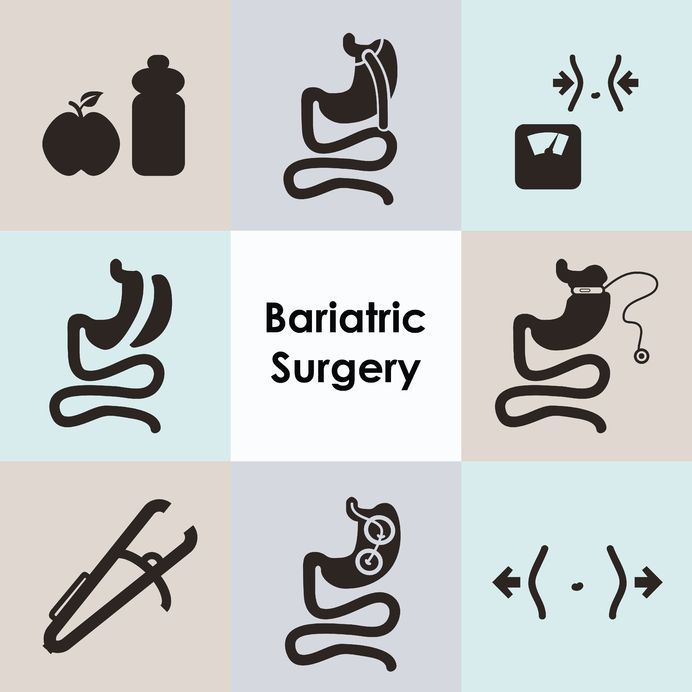
How Reversible is Bariatric Surgery?
Bariatric surgery is a collective term for surgeries that help you lose weight by making a few changes to your digestive system. Although most of these weight-loss surgeries can have positive outcomes, the side effects can be so severe that a patient desires a reversal. Whether you have had bariatric surgery or you are figuring out your options, you may be concerned or wondering if the procedure is reversible. We’ll discuss whether Bariatric surgery is reversible or not further in this article, as it can really depend on the type of bariatric surgery performed. Reversal is an option for different types of bariatric surgeries and if it is safe to reverse a weight loss surgery.
What Determines the Reversibility of a Bariatric Surgical Procedure?
A gastric bypass reversal is a type of surgery that focuses on returning the stomach and intestines of the patient to their original placement. It is possible to reverse certain procedures versus others depending on the specifics of each bariatric surgery. However, a reversal comes with a higher risk of complications that can cause life-threatening conditions. It is important to keep in mind that weight gain and other complications associated with obesity are likely to occur after reversal.
Other surgical procedures are considered non-reversible especially if there is a certain part of the stomach that was carved out during the surgery. Bariatric surgical procedures that use a device such as a band or intragastric balloon may have lower risks of reversal compared to surgeries that re-routed the digestive system or carved out a section of the stomach.
Reversible and Non-Reversible Bariatric Surgery
The question of whether gastric bypass can be revered or not really depends on the type of gastric bypass performed. We’ll review a few reversible and non-reversible gastric bypass procedures below:
- Gastric Bypass
Roux-en-Y Gastric bypass surgery is the most common type of bariatric procedure that is conducted in two phases. The initial phase involves creating a small pouch while the second phase focuses on connecting the pouch to the small intestine. Gastric bypass is possibly reversible but requires a lot of complex surgery that can be difficult to perform. It is sometimes considered non-reversible because it reduces the size of the stomach, rearranges the digestive system, and causes many alterations in gut hormones.
- Sleeve Gastrectomy
Sleeve gastrectomy is an aggressive surgical procedure that curves out a larger portion of the stomach. This makes it difficult to reverse the procedure because the lost portion can never be fitted back to its original placement. Although it could have a positive outcome for the patient, it is a procedure that can never be reversed.
- Adjustable Gastric Band
Gastric band surgery is a minimally invasive procedure that can be reversed by getting rid of the implanted device. Although bariatric patients can go for additional surgeries to readjust or reposition the band, it can remain in place for a long time until the patient is confident enough to lose weight without the help of the band. However, removing the band has higher consequences since it leaves a scar that increases the chances of a leak.
- Biliopancreatic Diversion with Duodenal Switch
This type of bariatric surgery rearranges the digestive system for food to bypass a larger portion of the small intestine. The complexity of this procedure makes it irreversible due to partial duodenal bypass and the loss of a larger portion of the digestive system. Although re-arrangements can be done to resemble normal food passage, there are many sacrifices done to make that possible making the ensuing operations riskier.
Is It Safe to Reverse a Bariatric Surgery?
Decreased blood flow and the presence of scar tissue are some of the factors that increase the complexity and risk of a bariatric surgery reversal. Although there are many risks involved in a surgery reversal, a few studies show positive outcomes for patients who underwent the procedure. However, other types of reversal surgeries are considered dangerous and impractical even if they can be undone at least in theory. The reason behind this is that re-operating a tissue that was already subjected to a previous surgical procedure not only causes damage to the affected structures but also increases the risks of bleeding. Scar tissue from previous surgeries also makes it difficult for operating surgeons to see or access the normal tissue. This makes it more difficult for staple lines and suture lines to heal properly after a repeat surgery.
Although other bariatric surgeries are reversible, they carry high risk and complexity that need to be discussed and planned with your surgeon and a team of healthcare professionals. Besides the surgical risks of reversing a bariatric surgery, you increase your chances of gaining back most of the weight lost during the initial surgery. Before considering a bariatric surgery reversal, it is important to consider other better alternatives to repeat surgery.
At the Weight Loss and Wellness Center, we’ve helped many people just like you by performing Revision Bariatric Surgery and creating custom wellness plans that address your individual health goals. Let’s get started today – contact us here for a consultation or give us a call at (973) 888-1085.

